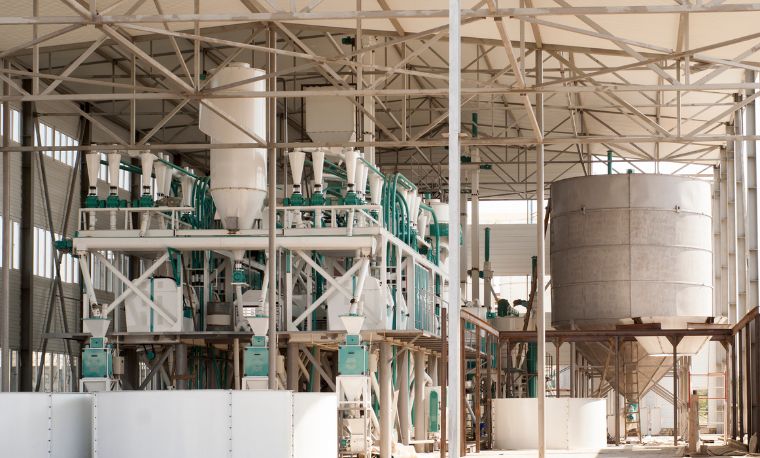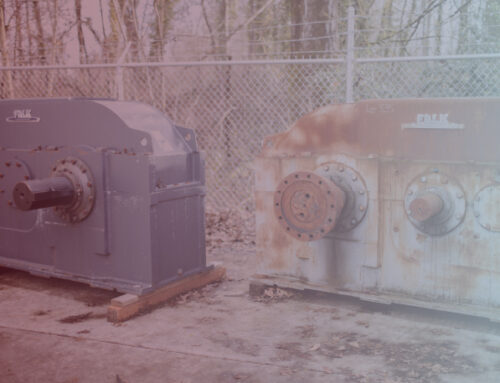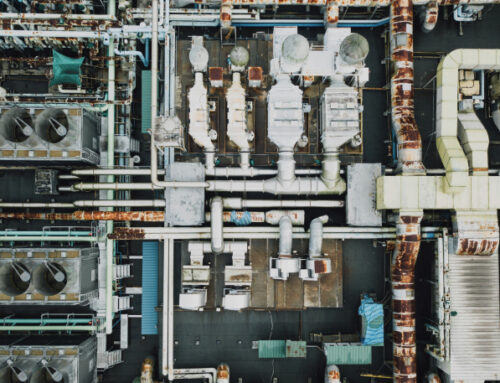As Falk gearbox technicians, we know how complex milling facilities can be. A flour mill, for example, requires several gearboxes to support everything from sifting to moving products through complex conveyor systems and eventually being loaded onto trucks, where it’s transported to a customer.
Those tasks require an organization to be less reactive and more proactive in its gearbox maintenance strategies to ensure a mill is safe, efficient, and profitable.
Why Gearbox Maintenance Matters in Milling
Unexpected downtime often costs businesses more than anticipated, whether the issue surfaces from a gearbox supporting a line shaft-powered roll or a feeder roll motor that results in losing valuable production time.
In some cases, proactive maintenance measures often prevent or mitigate the unintended consequences of gearbox failure, including:
- Unexpected shutdowns cost U.S. industrial manufacturing businesses nearly $50 billion annually.
- Unplanned downtime increases both fixed and variable costs.
- Equipment failure often leads to inferior product quality.
- Operating equipment to failure typically results in higher repair costs.
- Safety risks increase with poorly maintained equipment.
Industrial Gearbox Repair Tips for Mill Workers
Maintaining industrial gearboxes is crucial for smooth mill operations, especially in demanding environments. Gearbox issues can lead to costly downtime, but with the right knowledge, mill workers can spot early warning signs and perform essential repairs.
We understand mills include varying levels of engineering expertise. Contact our Falk gearbox repair team for additional national support if you feel inexperienced.
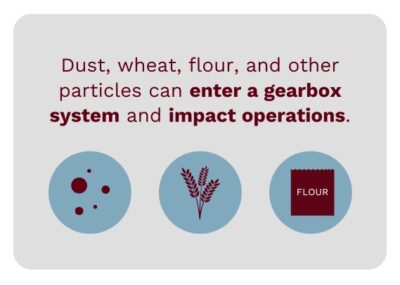 1. Routinely Clean Your Gearbox
1. Routinely Clean Your Gearbox
In flour mills, gearboxes are particularly vulnerable to contamination. Fine grain dust, wheat and flour, moisture, and other particles can enter a gearbox system and impact operations.
Start by reviewing the gearbox manufacturer’s directions to avoid rust, corrosion, and harmful particles. Then, take action by cleaning and wiping down the interior and exterior of the unit with the appropriate cleaning solution.
2. Watch and Listen for Warning Signs of Gearbox Failure
We know how loud grinding equipment and conveyor systems are in mills. Still, it’s essential to recognize the early signs of gearbox misalignment and overheating to avoid more expensive failures.
Below are a few warning signs your mill’s maintenance team should act on concerning a gearbox:
- Excessive vibrations
- Oil leaks around seals or gaskets
- Excessive heat during normal operations
- Signs of wear on external components
- Clicking or popping noises during operation cycles
- Signs of bearing brinelling, spalling, and fretting
3. Care for and Replace Bearings
Bearings are vital to a gearbox. They support the rotation of the shafts in a motor, securing the shaft to ensure efficiency and reduce heat generation, which prevents damage. Protect your gear drive’s bearings by taking the following steps:
- Properly lubricate your gearbox according to the manufacturer’s recommended lubricant type, grade, and amount.
- Ensure proper alignment with motors, pumps, and sifters to avoid excessive bearing loads.
- Avoid overloading your drive system.
Learn more about gearbox bearing care here >
4. Perform Regular Oil Maintenance
Gearboxes by Falk supporting granary and mill applications are exposed to various contaminants that can damage a gear drive by increasing temperatures or friction.
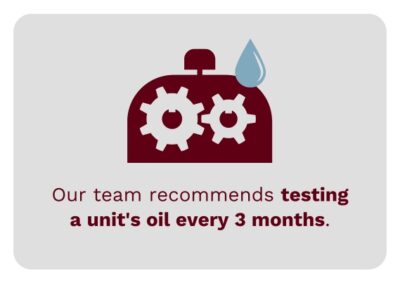
- Water
- Sediment
- ISO rating
- Viscosity
- Acid number
Depending on your oil analysis results, you may need to replace the oil entirely or monitor it to ensure existing lubricants aren’t overheating.
Learn more about gearbox oil maintenance here >
5. Schedule and Document Maintenance
Keeping detailed records of your gearbox maintenance activities is crucial for mill operations. A well-documented maintenance schedule helps predict potential issues before they become critical and ensures consistent performance across all mill gear drive systems.
We recommend documenting wear patterns with photos, maintaining replacement part inventories, and recording any unusual sounds or vibrations that could indicate potential failures.
Protect Your Mill With Expert Gearbox Support
While these maintenance tips can help prevent costly gearbox failures, we understand that not all mills have the resources to handle complex repairs. Whether you need emergency repairs or Falk replacement parts, we’re here for you by offering national support.
Contact our team today to keep your operation running efficiently with expert gearbox repair services.
